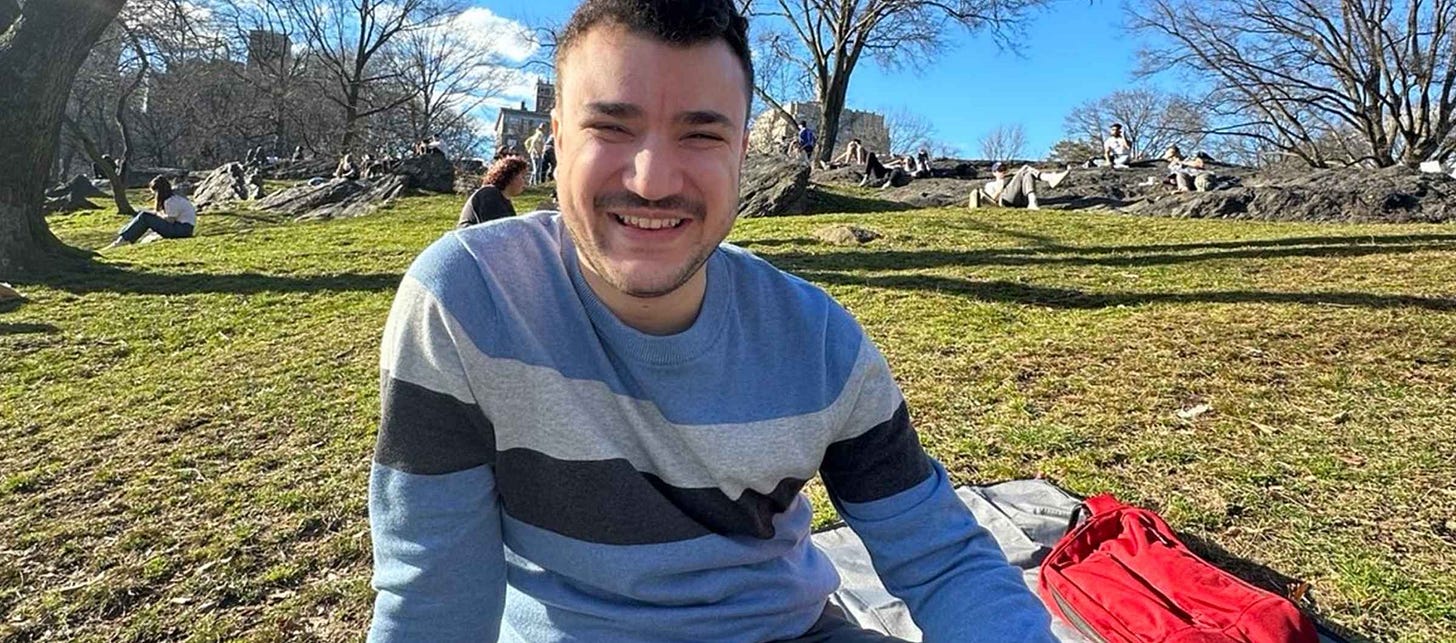THE WEEK’S US BORDER NEWS IN BRIEF:

Mahmoud Khalil Freed: Palestinian activist Mahmoud Khalil was released Friday from federal immigration detention, freed after 104 days by a judge’s ruling after becoming a symbol of President Donald Trump’s clampdown on campus protests.
The former Columbia University graduate student left a federal facility in Louisiana on Friday. He is expected to head to New York to reunite with his U.S. citizen wife and infant son, born while Khalil was detained. “Justice prevailed, but it’s very long overdue,” he said outside the facility in a remote part of Louisiana. “This shouldn’t have taken three months.”
Operations intensify in, and beyond, Los Angeles: While protests against stepped-up ICE raids continue in Los Angeles, along with a large military deployment, President Trump is urging the immigration enforcement agency to step up operations in other Democratic-run U.S. cities. Data is showing a big increase in detentions of migrants with no criminal records, while the agricultural, hospitality, and restaurant industries are sounding alarms about labor shortages, and public opinion is showing increased disapproval of the administration’s immigration approach.
Los Angeles Dodgers bar ICE Agents from stadium: The Los Angeles Dodgers say they blocked federal agents from entering their stadium on Thursday, as immigration enforcement continues in the city. In a post on social media, the baseball team said, "ICE agents came to Dodger Stadium and requested permission to access the parking lots", and were subsequently turned away. ICE denied that its agents were at the stadium. The Department of Homeland Security (DHS) oversees ICE and said other personnel were in the stadium parking lot "very briefly".
Massive “reconciliation” spending bill emerges in Senate and resembles House bill: Senate committees began revealing the text of their version of a massive bill that would add about $170 billion for the Trump administration’s border-hardening and mass-deportation plans. Analysis shows that amounts in the bill resemble those in legislation that narrowly passed the House of Representatives in May. It is far from clear whether the Republican-majority Congress will send a final bill to President Trump by July 4, as the White House has urged. Many intra-party disagreements remain, including key senators’ objections to the size of the border and immigration spending.
CBP reports on May migrant encounters: While migration at the U.S.-Mexico border remains near 60-year lows, data reported by CBP shows that migrant encounters in May increased slightly over March and April. Apprehensions of unaccompanied minors grew by more than a quarter. Of Border Patrol’s nine geographic U.S.-Mexico border sectors, El Paso was the busiest in west Texas and New Mexico for the fourth straight month. That sector has also seen a dramatic increase in recoveries of remains of migrants who perished of dehydration and exposure. Meanwhile, surveys of migrants along the U.S.-bound route show far fewer declaring an intention to settle in the United States.
NOTE: This weekly summary was adapted from a far more comprehensive one by WOLA.org, which you can read in full HERE.
(If you found this summary helpful, I invite you to financially support WOLA’s work).
FINALLY, IN CASE YOU MISSED IT:
(Stories covered by US Border News during the past week)

911 Calls Blocked by Illegals with Signal Jammers, DHS Warns
The devices are made in China
White House Immigration Policy Whiplash
Inside Story of a political roller-coaster ride
Uncomfortable immigration questions
A promise & question to you, my readers & subscribers:
I am committed to delivering a Weekly US Border Newsletter that is educational, insightful, engaging, and easy to digest in five minutes or less.
(How am I doing? Let me know in the comments!)
Abrazos,
Jack Beavers





Jack, thank you for your service and for the posts. I read them every day. Good stuff!